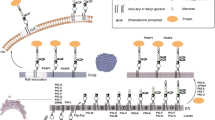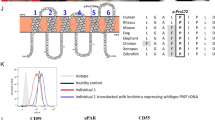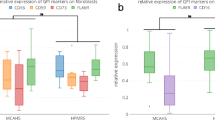Abstract
Introduction
PIGW-related glycosylphosphatidylinositol deficiency is a rare disease that manifests heterogeneous clinical phenotypes.
Methods
We describe a patient with PIGW deficiency and summarize the clinical characteristics of the case. In addition, we conducted a literature review of previously reported patients with pathogenic variants of PIGW.
Results
A Chinese girl presented with refractory epilepsy, severe intellectual disability, recurrent respiratory infections, and hyperphosphatasia. Seizures worsened during fever and infections, making her more susceptible to epileptic status. She was found to carry a heterozygous variant of PIGW and a deletion of chromosome 17q12 containing PIGW. Only six patients with homozygous or compound heterozygous pathogenic variants of PIGW have been identified in the literature thus far. Epileptic seizures were reported in all patients, and the most common types of seizures were epileptic spasms. Distinctive facial and physical features and recurrent respiratory infections are common in these patients with developmental delays. Serum alkaline phosphatase (ALP) levels were elevated in four of the six patients.
Conclusions
PIGW-related glycosylphosphatidylinositol deficiency is characterized by developmental delay, epilepsy, distinctive facial features, and multiple organ anomalies. Genetic testing is an important method for diagnosing this disease, and flow cytometry and serum ALP level detection are crucial complements for genetic testing.


Similar content being viewed by others
Data availability
The data that support the findings of this study are available from the corresponding author upon reasonable request.
References
Kinoshita T, Fujita M, Maeda Y (2008) Biosynthesis, remodelling and functions of mammalian GPI-anchored proteins: recent progress. J Biochem 144(3):287–294. https://doi.org/10.1093/jb/mvn090
Kinoshita T (2014) Biosynthesis and deficiencies of glycosylphosphatidylinositol. Proc Jpn Acad Ser B Phys Biol Sci 90(4):130–143. https://doi.org/10.2183/pjab.90.130
Makrythanasis P, Kato M, Zaki MS et al (2016) Pathogenic variants in PIGG cause intellectual disability with seizures and hypotonia. Am J Hum Genet 98(4):615–626. https://doi.org/10.1016/j.ajhg.2016.02.007
Bellai-Dussault K, Nguyen TTM, Baratang NV, Jimenez-Cruz DA, Campeau PM (2019) Clinical variability in inherited glycosylphosphatidylinositol deficiency disorders. Clin Genet 95(1):112–121. https://doi.org/10.1111/cge.13425
Jaeken J, Péanne R (2017) What is new in CDG? J Inherit Metab Dis 40(4):569–586. https://doi.org/10.1007/s10545-017-0050-6
Murakami Y, Siripanyapinyo U, Hong Y et al (2003) PIG-W is critical for inositol acylation but not for flipping of glycosylphosphatidylinositol-anchor. Mol Biol Cell 14(10):4285–4295. https://doi.org/10.1091/mbc.e03-03-0193
Hogrebe M, Murakami Y, Wild M et al (2016) A novel mutation in PIGW causes glycosylphosphatidylinositol deficiency without hyperphosphatasia. Am J Med Genet A 170(12):3319–3322. https://doi.org/10.1002/ajmg.a.37950
Fu L, Liu Y, Chen Y, Yuan Y, Wei W (2019) Mutations in the PIGW gene associated with hyperphosphatasia and mental retardation syndrome: a case report. BMC Pediatr 19(1):68. https://doi.org/10.1186/s12887-019-1440-8
Foskett GK, Engleman E, Klotz J et al (2018) Use of flow cytometry for diagnosis of epilepsy associated with homozygous PIGW variants. Pediatr Neurol 85:67–70. https://doi.org/10.1016/j.pediatrneurol.2018.05.010
Chiyonobu T, Inoue N, Morimoto M, Kinoshita T, Murakami Y (2014) Glycosylphosphatidylinositol (GPI) anchor deficiency caused by mutations in PIGW is associated with West syndrome and hyperphosphatasia with mental retardation syndrome. J Med Genet 51(3):203–207. https://doi.org/10.1136/jmedgenet-2013-102156
Peron A, Iascone M, Salvatici E et al (2020) PIGW-related glycosylphosphatidylinositol deficiency: Description of a new patient and review of the literature. Am J Med Genet A 182(6):1477–1482. https://doi.org/10.1002/ajmg.a.61555
Pavone P, Polizzi A, Marino SD et al (2020) West syndrome: a comprehensive review. Neurol Sci 41(12):3547–3562. https://doi.org/10.1007/s10072-020-04600-5
Schröder-Braunstein J, Kirschfink M (2019) Complement deficiencies and dysregulation: Pathophysiological consequences, modern analysis, and clinical management. Mol Immunol 114:299–311. https://doi.org/10.1016/j.molimm.2019.08.002
Krawitz PM, Murakami Y, Hecht J et al (2012) Mutations in PIGO, a member of the GPI-anchor-synthesis pathway, cause hyperphosphatasia with mental retardation. Am J Hum Genet 91(1):146–151. https://doi.org/10.1016/j.ajhg.2012.05.004
Horn D, Wieczorek D, Metcalfe K et al (2014) Delineation of PIGV mutation spectrum and associated phenotypes in hyperphosphatasia with mental retardation syndrome. Eur J Hum Genet 22(6):762–767. https://doi.org/10.1038/ejhg.2013.241
Krawitz PM, Murakami Y, Rieß A et al (2013) PGAP2 mutations, affecting the GPI-anchor-synthesis pathway, cause hyperphosphatasia with mental retardation syndrome. Am J Hum Genet 92(4):584–589. https://doi.org/10.1016/j.ajhg.2013.03.011
Murakami Y, Kanzawa N, Saito K et al (2012) Mechanism for release of alkaline phosphatase caused by glycosylphosphatidylinositol deficiency in patients with hyperphosphatasia mental retardation syndrome. J Biol Chem 287(9):6318–6325. https://doi.org/10.1074/jbc.M111.331090
Thompson MD, Killoran A, Percy ME, Nezarati M, Cole DE, Hwang PA (2006) Hyperphosphatasia with neurologic deficit: a pyridoxine-responsive seizure disorder? Pediatr Neurol 34(4):303–307. https://doi.org/10.1016/j.pediatrneurol.2005.08.020
Kuki I, Takahashi Y, Okazaki S et al (2013) Vitamin B6-responsive epilepsy due to inherited GPI deficiency. Neurology 81(16):1467–1469. https://doi.org/10.1212/WNL.0b013e3182a8411a
Acknowledgements
We thank the patients and their families for their cooperation in this study.
Funding
This research did not receive any specific grant from funding agencies in the public, commercial, or not-for-profit sectors.
Author information
Authors and Affiliations
Contributions
All authors contributed to the study conception and design. Zhixu Fang, and Chaoping Hu collected the patients’clinical information. Material preparation and data collection and analysis were performed by Zhixu Fang, and Shuizhen Zhou. Zhixu Fang drafted the first version of the manuscript. Lifei Yu critically reviewed and revised the manuscript. All authors commented on previous versions of the manuscript. All authors read and approved the final manuscript.
Corresponding author
Ethics declarations
Ethical approval
Ethics approval for this study was obtained from the Ethics Board of the Children’s Hospital of Fudan University.
Informed consent
Written informed consent was obtained from the parents.
Competing interests
The authors of this manuscript have no financial or personal conflict of interest to disclose.
Additional information
Publisher's Note
Springer Nature remains neutral with regard to jurisdictional claims in published maps and institutional affiliations.
Rights and permissions
Springer Nature or its licensor (e.g. a society or other partner) holds exclusive rights to this article under a publishing agreement with the author(s) or other rightsholder(s); author self-archiving of the accepted manuscript version of this article is solely governed by the terms of such publishing agreement and applicable law.
About this article
Cite this article
Fang, Z., Hu, C., Zhou, S. et al. PIGW-related glycosylphosphatidylinositol deficiency: A case report and literature review. Neurol Sci 45, 2253–2260 (2024). https://doi.org/10.1007/s10072-023-07225-6
Received:
Accepted:
Published:
Issue Date:
DOI: https://doi.org/10.1007/s10072-023-07225-6




